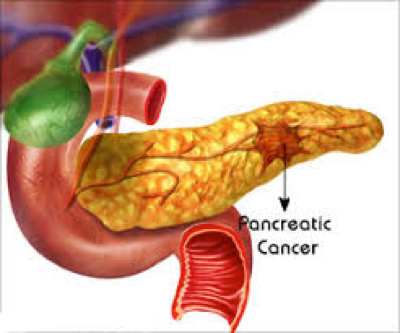For The Latest Medical News, Health News, Research News, COVID-19 News, Pharma News, Glaucoma News, Diabetes News, Herb News, Phytochemical News, Thailand Cannabis News, Cancer News, Doctor News, Thailand Hospital News, Oral Cancer News, Thailand Doctors

Currently, health care providers offer genetic testing only to pancreatic cancer patients with a family history of the disease. That accounts for just 10 percent of all pancreatic cancer cases. Research suggests these testing guidelines miss genetic predisposition to cancer in up to 90 percent of pancreatic cancer patients with no family history. This finding is significant in part because the data suggest that family members should have DNA testing to understand their risk for cancer.
"This study provides the most comprehensive data to date supporting genetic testing for all pancreatic cancer patients," say Fergus Couch, Ph.D., a senior author on the study. "This is the first study to provide estimates on the magnitude of cancer risk associated with each gene. It indicates that family history alone cannot predict who has these mutations."
"Multiple genes can each increase risk of pancreatic cancer. But if genetic testing is performed only on patients with a family history of pancreatic cancer, then a small number of patients will be helped," says Gloria Petersen, Ph.D., a Mayo Clinic researcher and senior author.
Genetic testing was conducted on 3,030 pancreatic patients who were seen at Mayo Clinic between 2000 and 2016. The test results of 21 cancer genes were compared to similar results from more than 123,000 patients without pancreatic cancer. The study found six genes clearly linked to an increased risk of pancreatic cancer: BRCA1, BRCA2, CDKN2A, TP53, MLH1 and ATM. These genetic mutations were identified in 5.5 percent of all pancreatic cancer patients, including 5.2 percent of cancer patients without a family history of pancreatic cancer.
Patients who have these genetic mutations are at a substantially higher risk for pancreatic cancer, but that does not definitively mean they will develop the disease.
Says Raed Samara, Ph.D., a study author from QIAGEN Sciences Inc. "The comprehensive data generated from this cohort required the specific and uniform sequencing, and deep analyses of a focused set of cancer predisposition genes. The risks of developing pancreatic cancer due to mutations in these genes can be more accurately estimated than ever before because of this seminal study." Qiagen Sciences Inc. designed the DNA testing for this research.
Often, pancreatic cancer is not diagnosed until late stages, when it has spread to oth
er parts of the body. This year, 55,000 Americans will be diagnosed with pancreatic cancer, and 44,000 American will die of the disease this year, according to American Cancer Society estimates.
Reference: Mayo Clinic